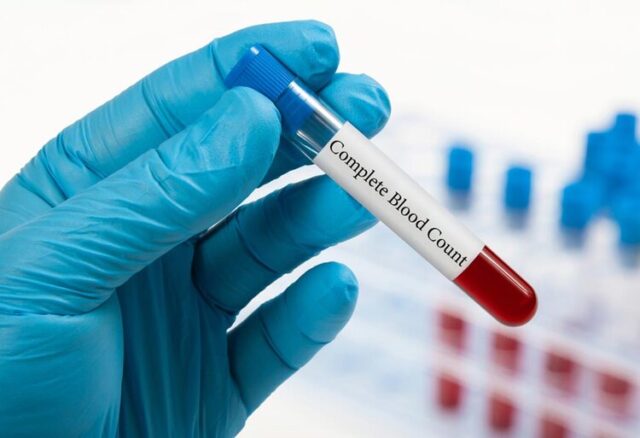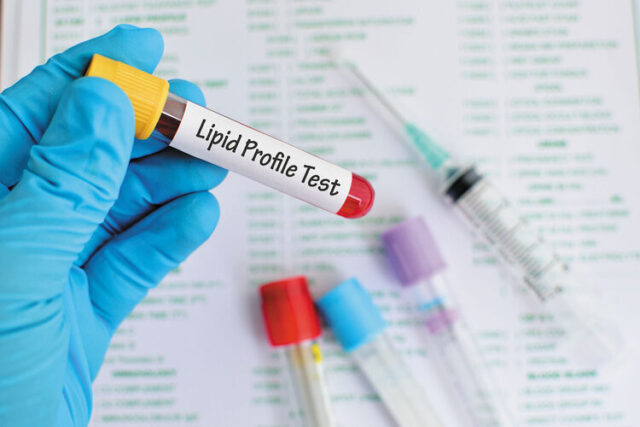GRI Labs offers an extensive set of serology tests and blood panels.
 Regular blood testing is one of the most important ways to keep track of overall physical well-being. Most doctors will recommend at least one blood test a year as part of an annual physical. But this is the bare minimum. More frequent blood testing is warranted for patients experiencing unusual, persistent symptoms — anything from fatigue to abnormal weight gain to pain. It is also key to optimizing health — knowing levels of HDL and LDL cholesterol allows patients adjust their diet and fitness plans while minimizing unhealthy habits. Blood tests can also help reduce the risk of disease or complications — many heart, lung, and kidney conditions can be diagnosed using blood tests.
Regular blood testing is one of the most important ways to keep track of overall physical well-being. Most doctors will recommend at least one blood test a year as part of an annual physical. But this is the bare minimum. More frequent blood testing is warranted for patients experiencing unusual, persistent symptoms — anything from fatigue to abnormal weight gain to pain. It is also key to optimizing health — knowing levels of HDL and LDL cholesterol allows patients adjust their diet and fitness plans while minimizing unhealthy habits. Blood tests can also help reduce the risk of disease or complications — many heart, lung, and kidney conditions can be diagnosed using blood tests.
GRI Labs offers an extensive set of serology tests and blood panels, including the following:
SARS-CoV-2 Antibody – Antibody testing can be a vital tool for determining who has already been infected and might have immunity to the virus. Serology testing for SARS-CoV-2 is at increased demand in order to better quantify the number of cases of COVID-19, including those individuals who may be asymptomatic or have recovered.
Complete Blood Count (CBC) – A routine CBC test checks for levels of 10 different components of every major cell in the blood: white blood cells, red blood cells, and platelets. Important components measured by this test include red blood cell count, hemoglobin, and hematocrit. Abnormal levels of these components may indicate nutritional deficiencies, such as vitamin B-6 or B-12, iron deficiency, bone marrow issues, tissue inflammation, infection, heart conditions, or cancer.
Basic Metabolic Panel (BMP) – The BMP checks for levels of certain compounds in the blood, such as electrolytes, calcium, glucose, sodium, potassium, carbon dioxide, chloride, blood urea nitrogen (BUN), and creatinine. Abnormal results may indicate kidney disease, diabetes, or hormone imbalances.
Comprehensive Metabolic Panel (CMP) – The CMP includes all the measurements of a BMP as well as additional proteins and substances related to liver function, including albumin, total protein, alkaline phsphatase, alanine aminotransferase, aspartate aminotransferase, and bilirubin.
 Lipid Panel– The lipid panel, also known as a lipid profile test, checks levels of two types of cholesterol: high-density lipoprotein (HDL), or “good” cholesterol and low-density lipoprotein (LDL), or “bad” cholesterol. HDL is “good” because it removes harmful substances from the blood and helps the liver break them down into waste. LDL is “bad” because it can cause plaque to develop in the arteries, increasing the risk of heart disease.
Lipid Panel– The lipid panel, also known as a lipid profile test, checks levels of two types of cholesterol: high-density lipoprotein (HDL), or “good” cholesterol and low-density lipoprotein (LDL), or “bad” cholesterol. HDL is “good” because it removes harmful substances from the blood and helps the liver break them down into waste. LDL is “bad” because it can cause plaque to develop in the arteries, increasing the risk of heart disease.
Thyroid Panel – A thyroid panel, or thyroid function test, checks how well the thyroid is producing and reacting to certain hormones, including triiodothyronine (T3),, thyroxine (T4), and thyroid-stimulating hormone (TSH). The thyroid helps regulate bodily functions like mood, energy level, and overall metabolism. Abnormal levels of these hormones can indicate numerous conditions, such as low protein levels, thyroid growth disorders, and abnormal levels of testosterone or estrogen.
GRI Labs offers a variety of other blood tests, including a Coagulation Panel to measure how well the blood clots, a DHEA-Sulfate Serum Test to measure adrenal gland hormones, and a C-Reactive Protein Test which indicates inflammation from a variety of causes.
Download the full GRI Blood Test Menu.